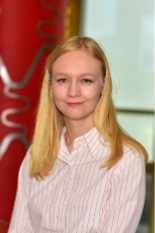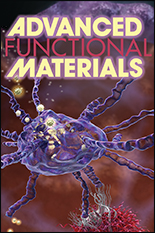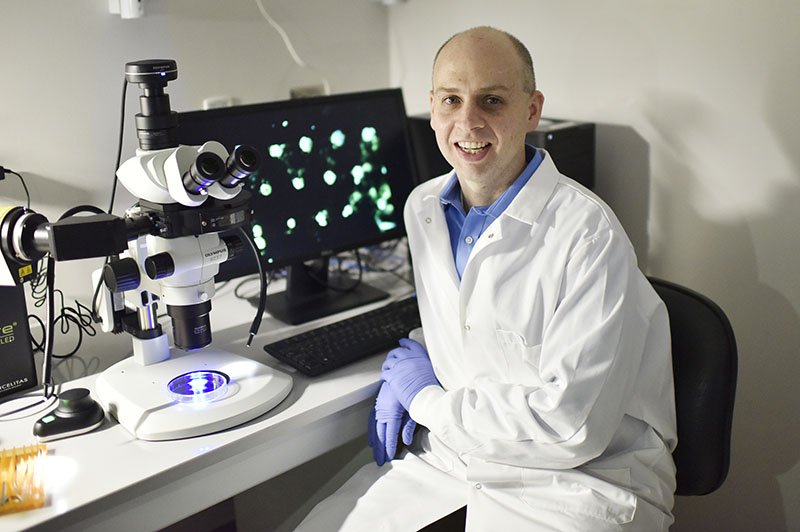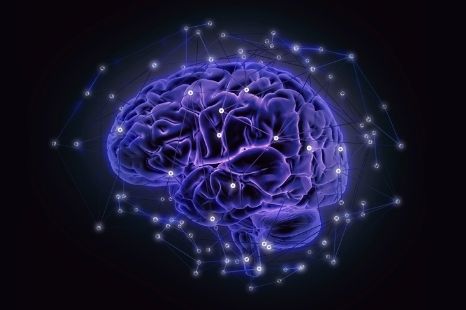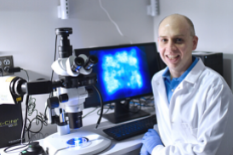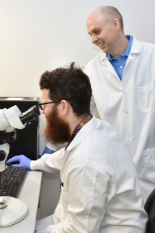News Story
BIOE Researcher Works to Advance MS, Autoimmune Disease Research
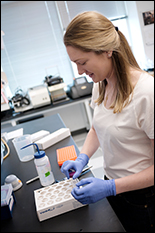
Lisa Tostanoski
University of Maryland Fischell Department of Bioengineering (BIOE) Ph.D. student Lisa Tostanoski won a $15,000 Lemelson-MIT Student Prize for efforts to develop two novel biomaterials-based strategies to combat multiple sclerosis (MS) and other autoimmune diseases. Tostanoski, a researcher in BIOE assistant professor Christopher Jewell’s lab, is the first University of Maryland student to win the prestigious prize.
“Multiple sclerosis is estimated to affect 2.3 million people worldwide,” said Tostanoski. “While current clinical therapies provide important benefits for patients, they are limited by off-target effects, which leave patients immunocompromised. They also lack cure-potential, which means patients receive regular, lifelong treatments.”
Recently, scientists have explored the potential to use vaccine-like therapies to treat autoimmunity. Such techniques aim to specifically control the attack of self-molecules – like myelin in multiple sclerosis – while leaving the rest of the immune system intact. In MS, the immune system incorrectly recognizes myelin that insulates and protects nerves fibers in the brain. Immune cells enter the brain and attack, leading to slow loss of motor function and other complications. Current therapies for MS work by decreasing the activity of the immune system; but, they do so in a broadly-suppressive way that often leaves patients vulnerable to infection.
In search of a solution, researchers like Tostanoski are working to develop new strategies that enable control over combinations and doses of therapies that reach particular tissues in the body.
Tostanoski’s first project applies a targeted injection technique to deposit degradable polymer carriers – loaded with the desired therapeutic cargos – directly in lymph nodes, the tissues that coordinate the body’s immune responses. These particles slowly degrade in the lymph nodes, releasing signals that program cells not to attack “self” tissues. Instead, these cues aim to expand regulatory immune cells that could then leave the lymph nodes and move to the brain and spinal cord to control inflammation and disease. The research team, which joins together the Jewell Lab and the immunology lab of Dr. Jonathan Bromberg at the University of Maryland School of Medicine, is currently working to understand the mechanism as well as the translational potential to other disease models. Their findings were recently highlighted in the journal Cell Reports.
In the second approach, Tostanoski and fellow researchers use specialized technology to create immune polyelectrolyte multilayers (iPEMs) built entirely from immune signals. These iPEMs are self-assembled on particle templates during production. Then, the templates are dissolved to leave hollow capsules that consist only of the immune cues the lab wants to deliver, eliminating the need for carrier components. University of Maryland School of Medicine Professor of Neurology Walter Royal and members of his lab collaborated with Tostanoski and Jewell to conduct pilot studies investigating how iPEMs interact with samples from human MS patients. Findings from these studies were published in ACS Nano.
Tostanoski, Jewell, and the research team have shown that this approach controls inflammation in samples from human multiple sclerosis patients, and eliminates disease in mouse models of multiple sclerosis. This cutting-edge technique mimics useful features of biomaterial therapeutics – such as co-delivery, targeting, and “cargo” protection – but is much simpler because no carrier components are needed. Even more, this feature also eliminates the risk of activating the immune system in the unintended or unexpected ways sometimes associated with synthetic materials.
Recent media coverage of the Jewell Lab's efforts to combat MS and autoimmune diseases is listed below:
- Baltimore Sun, "University of Maryland grad student restores movement to mice crippled with multiple sclerosis," April 28, 2017.
- MIT News, "Collegiate inventors awarded 2017 Lemelson-MIT Student Prize," April 19, 2017.
- Multiple Sclerosis Today, "UMD Team Reverses Paralysis in MS Mouse Model Using Novel Immunotherapy Strategy," April 5, 2017
- Fierce Biotech, "'Reprogramming' lymph nodes reverses paralysis from MS in mice," September 21, 2016.
- Medical Xpress, "Biomedical researchers break new ground in fight against multiple sclerosis," September 19, 2016.
- Science Daily, "New way to reprogram lymph node function to fight multiple sclerosis," September 15, 2016.
Published May 8, 2017
